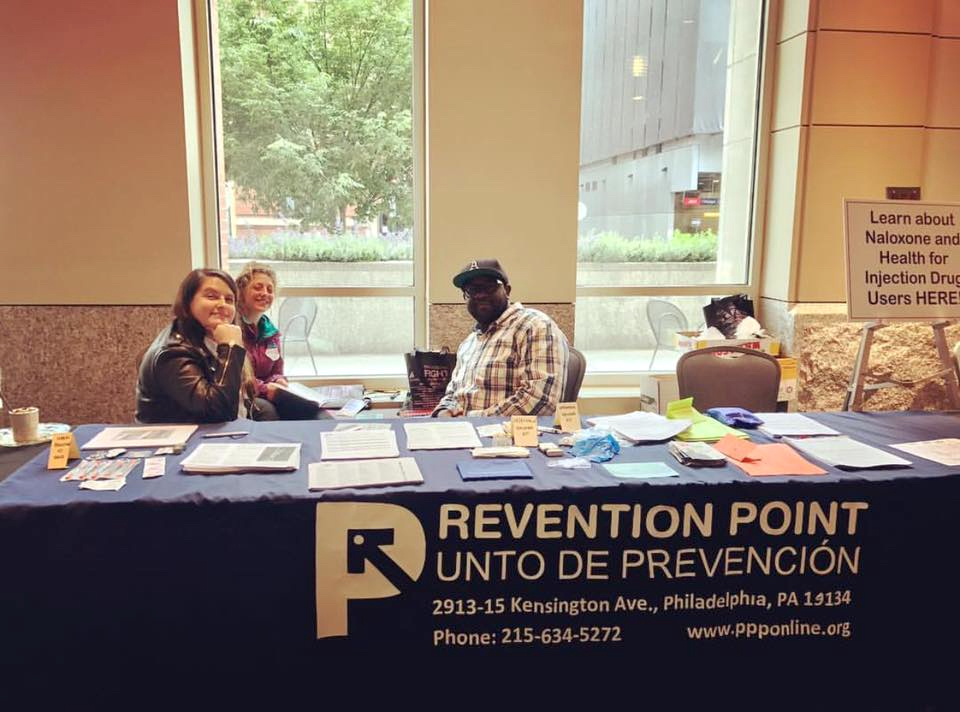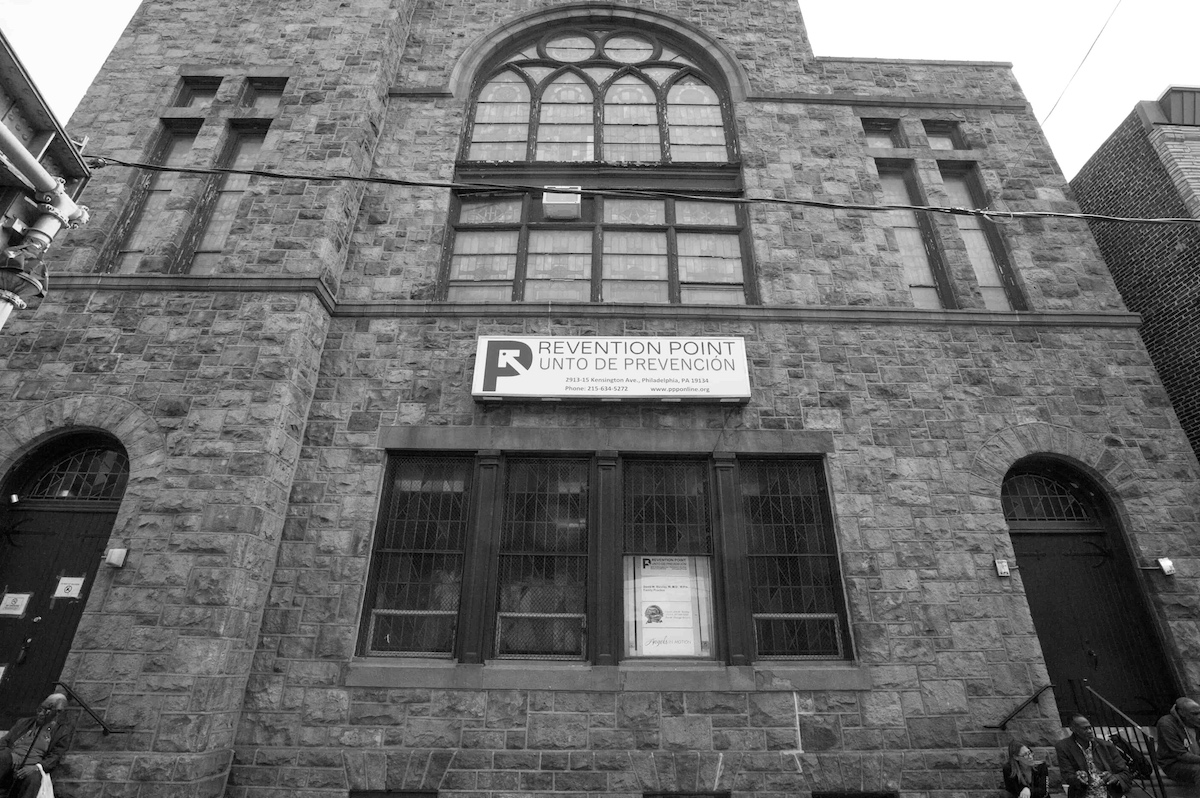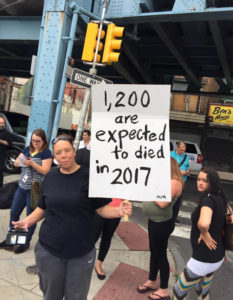Prevention Point Philadelphia marks 25 years of battling HIV, AIDS and the opioid epidemic
 November 15, 2017
Category: Featured, Long, Q&A, Results
November 15, 2017
Category: Featured, Long, Q&A, Results
“Nontraditional” is a word that comes up often when Jose Benitez, executive director of Prevention Point Philadelphia (PPP), describes the work his nonprofit does for those living with AIDS, HIV and especially as of late, substance use disorders.
The Kensington org certainly embodied the term back in the early ’90s by offering its syringe exchange services, which were at the time illegal even when used to curb the spread of HIV and AIDS.
After an executive order set in 1992 by then-mayor Ed Rendell legalized the possession of syringes in Philly, PPP, launched out of the local chapter of the AIDS Coalition to Unleash Power, was able to operate at its full capacity.
Since then, PPP has been expanding its services to now offer HIV clinics, case management, medication-assisted treatment (MAT), education in overdose-reversal drug naloxone and the like. It’s gained an unprecedented amount of attention in the past year for its work, thanks to an exploding opioid epidemic and anti-overdose superstars like Education and Community Outreach Coordinator Elvis Rosado.
“I think we’re a safe haven for people,” Benitez said. “I think that the kinds of innovations where we’re trying to make sure to keep people safe and provide people with instant access to treatment when they want, is what will keep Prevention Point growing.”
PPP is celebrating its 25th anniversary tomorrow evening at MaKen Studios. We checked in with Benitez to hear about what’s changed in his past 11 years as ED, how PPP will continue to advocate for services like the controversial safe injection sites and what he envisions the next 25 years will look like.
Generocity: Could you describe what PPP’s harm reduction philosophy is about and why it’s so important to PPP’s mission?
Jose Benitez: I think harm reduction for the most part has been about meeting people where they are. It doesn’t necessarily mean you have to stop using drugs to get a service from us. … Staying away from that non-judgmental piece of what has traditionally been in our service industry. So all the programs that we’ve grown in the last 11 to 12 years reflect sort of a timeline of where people might be in a recovery process or not able to recover because they’re not ready for it.
G: What do you feel have been the biggest contributors to PPP being able to now offer all these services to those affected by drug use and poverty?
JB: First and foremost, our staff. Most of them come from the community that we serve, and really, all of them are here because they care about this issue and they care about it passionately. So one of the things you get when you come here is this sense of people really caring and seeing people as human beings, no matter where they are in their lives. I think that’s the biggest piece of the formula that works for us.
Second, I think it’s the fact that harm reduction programs have been studied — like syringe exchange programs which have been studied since the early ‘90s — and the data shows that they’re really effective. If you look at the new HIV cases that were reported back in 1992, 47 percent of all the HIV cases came from people who were using syringes and sharing needles. Prevention Point was started 25 years ago and when you look at the last report in 2016, we went from 47 percent to 5 percent.
That’s pretty impressive when you’re talking about needing to spend around $1 million to take care of a person who has HIV for their lifetime. Here, we’re preventing that disease with an eight-cent syringe. So it’s not just that we’re saving lives, we’re also saving taxpayer dollars.
G: As someone who’s been working in the HIV- and AIDS-prevention field for a while now, what has your time as the ED of a nonprofit like PPP taught you?
JB: One of the big things that you learn as an ED is that your organization can’t do everything — we can’t be everything to everyone, so we have to partner with people who are better at some of the other stuff. … So there’s all of these partnerships that we have that have helped us in providing services.
G: Are there any partnerships you’re looking to foster for the future?
JB: Our state government is something that’s been really resistant to funding organizations like PPP. The state health department doesn’t fund syringe exchange programs and that’s one of the things that we as an organization would like to see changed. We get funding from the city health department, funding from the Office of Homeless Services and from the Office of Addiction Services, and so those are valued relationships that we will hopefully continue.
G: You’ve voiced your support for safe injection sites in Philly, even saying you’d be OK with hosting one at PPP. Why?
JB: You really have to look at in the context of the 907 [overdose] deaths last year in Philadelphia, triple the homicide rate at this point. We’re on track this year to lose 1,200 people. So we really need to do something yet again that’s not traditional and one of those options are safe injection sites. We as an organization support the development of one because we want to see people be safe.
There was a recent Baltimore study [from the Harm Reduction Journal] that looked at how one safe injection site in Baltimore could save the city $6 million a year, as well as countless lives. So in Philadelphia, we have to look at that and really begin to think through whether or not the city should embrace this nontraditional approach to it.
G: What do you hope the next 25 years will look like for PPP?
JB: I think for us, there have been some challenging times. There have been a lot of other syringe exchange programs that have started throughout the country and didn’t survive. So I think we’re lucky that way and we couldn’t have done it without the support from our city partners — it’s pretty amazing that city government supports us as much as they do.
This organization also consistently asks its participants, “What do you need? What programs should we develop?” Our shelter, our MAT clinic, HIV clinics — these are all programs our participants asked us for and that’s the way we operate as an organization, that our participants have a sense of ownership. I think that’s what’s gonna get us through another 25 years.
Project
Office of Homeless ServicesTrending News











